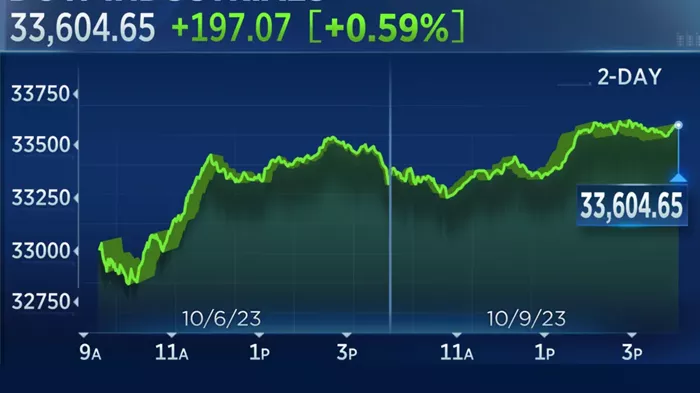U.S. stock futures gained Monday morning despite ongoing missile strikes between Israel and Iran over the weekend, which unsettled global markets. Oil prices also edged higher, continuing last week’s surge to their highest levels since January.
Futures for the Dow Jones Industrial Average rose 0.3%, S&P 500 futures increased 0.4%, and Nasdaq 100 futures gained 0.4%. This cautious optimism follows a sharp sell-off on Friday, when the Dow dropped more than 700 points amid broad risk aversion.
The geopolitical tensions come at a sensitive time for markets already affected by tariff uncertainties. Last week’s losses pushed the Dow down 1.3%, while the S&P 500 and Nasdaq Composite fell 0.4% and 0.6%, respectively. Gold prices also rose alongside oil, as investors sought safe-haven assets amid growing volatility.
Oil prices jumped sharply Sunday evening. West Texas Intermediate crude futures surged over 6% to nearly $76 a barrel before settling just below $74. Brent crude showed a similar pattern, peaking near $78 a barrel. The rise reflects concerns that the Israel-Iran conflict could disrupt global energy supplies, especially after Iran hinted at closing the Strait of Hormuz, a vital passage for about 20% of the world’s oil.
Markets remain tense following retaliatory strikes targeting energy infrastructure on both sides. There are fears the conflict could escalate into a broader regional crisis.
Investors are also watching for economic signals, including Monday’s New York Fed Empire State Manufacturing Survey, ahead of the Federal Reserve’s interest rate decision on Wednesday. Most expect the Fed to keep rates steady, but rising oil prices may complicate inflation control efforts. Despite President Trump’s calls for rate cuts, current market conditions limit the Fed’s flexibility.
You may also like:


